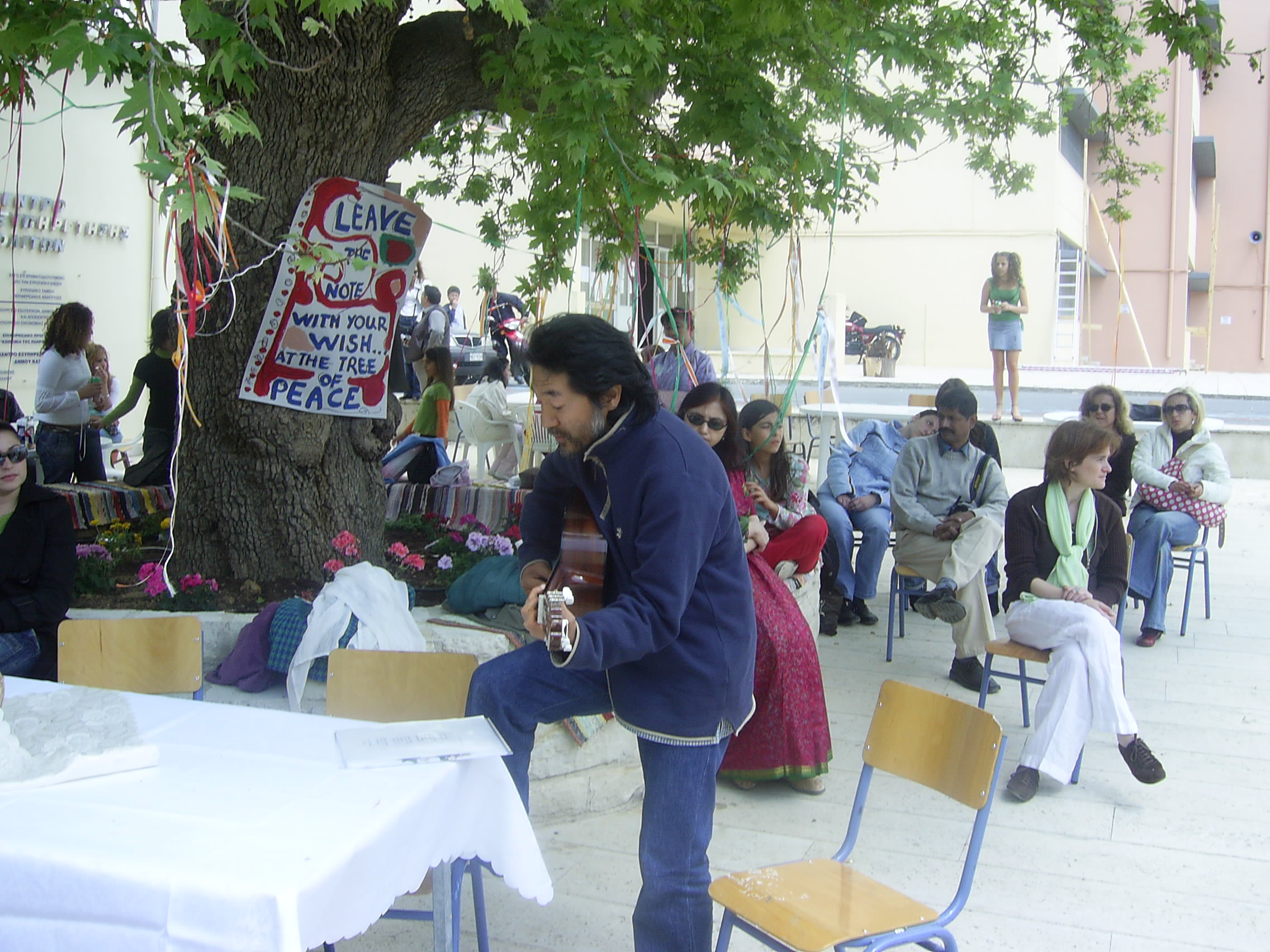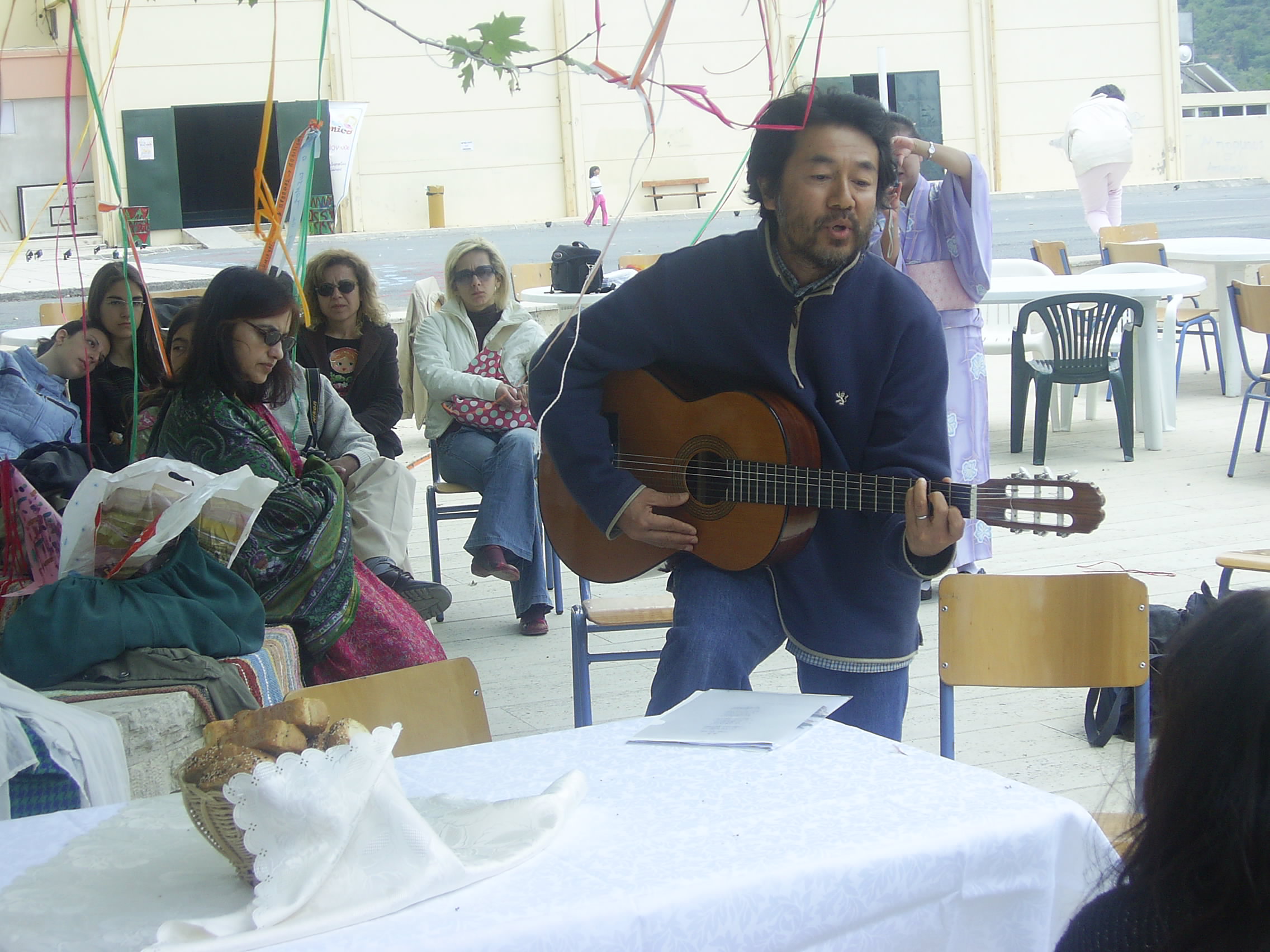The philosopher Tadashi Nishihira
A musical performance given by

The philosopher Tadashi Nishihira
Philosophical post-script:
The philosopher is concerned about a specific trend amongst the youth in Japan, and calls it 'Nihilism'.*
It reminds of what Robert Musil wrote in his book 'The Man without Attributes': Ulrich, the main character, joins a party of a younger girl whose father is bank director and while talking with the youth sitting on the stairs, he begins to realize the worst thing for young people is when they send out their ideas into the world is not to get any response - that is worse than criticism!
Now, there was not much time or opportunity given to compare between the youth in Europe and in Japan, but some similarities might be found especially in Germany where the post war period had to confront more than mere silence, or the refusal to speak about war crimes. How this affects in turn the socialization of the younger generations, especially if they cannot trust their parents, that is another matter.
Crucial in this regard is how philosophers deal with this phenomenon since 'travel' not only from Japan to Greece, but even within the own house can mean to leave one room or space to go to another one, and as this entails stepping over a threshold, what tension in between person and space can mean an intertwine or a face to face dialogue?
Certainly one stands to discover an interpretation of Japanese traditional wisdom as he has interpreted Zeami thought. Of interest would be to take up a further going discussion as to what such a throught could mean for the present life in Japan. Since it is still frought with problems of hierarchy and traditional values, party politics and big business, with contrived reasoning being used to link up with the past to the point of silencing the masses of people, there stands to question what amounts to a collective obedience and what does constitute a break with the past?
Not as of yet familiar with writing, some indication thereof is given below. However, he did publish one essay about Yukio Masubuchi with the sub-title "Education for the recognition of 'dignity of life' and Humanism" (in: Studies of Philosophy of Education, Nr. 102, Vol. 102, 2010).
HF 27.7.2013
Biographical details
NISHIHIRA Tadashi
|
Research Keywords
Research Areas
-
Philosophy / Religious studies /
-
Philosophy / History of thought /
-
Education / Education /
Bibliography
|
The Psychology and Philosophy of E. H. Erikson
University of Tokyo Press 1993
|
|
The Spiritual Life cycle in the work of Jung・Wilber・Steiner
University of Tokyo Press 1997
|
|
Existential-Time in the Life Cycle
1995
|
|
What is death-education?
1997
|
|
Social selection and the identity
1995
|
Research Projects (Competitive Research Funds)
« An artist's view of Kastelli: Asit Poddar | Closing ceremony with music, dance and friendship »


